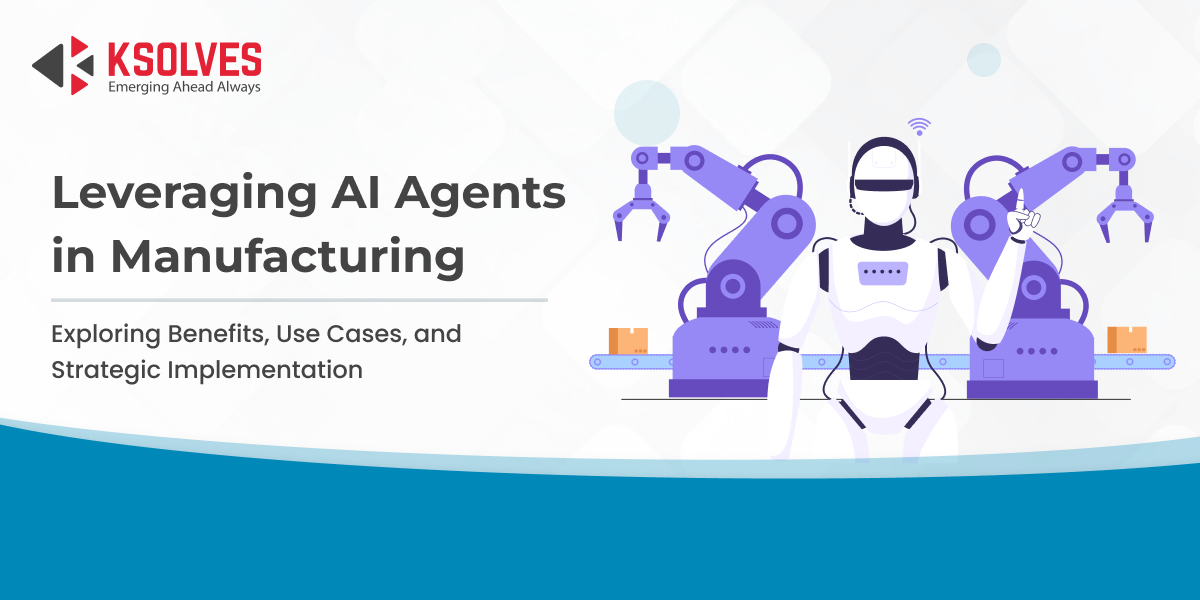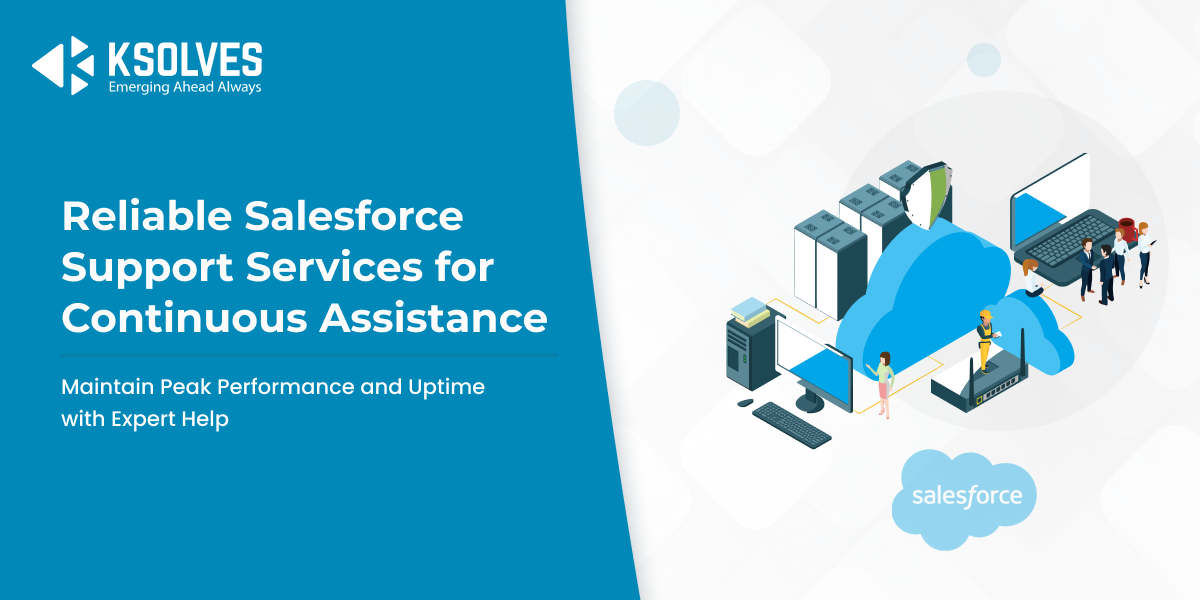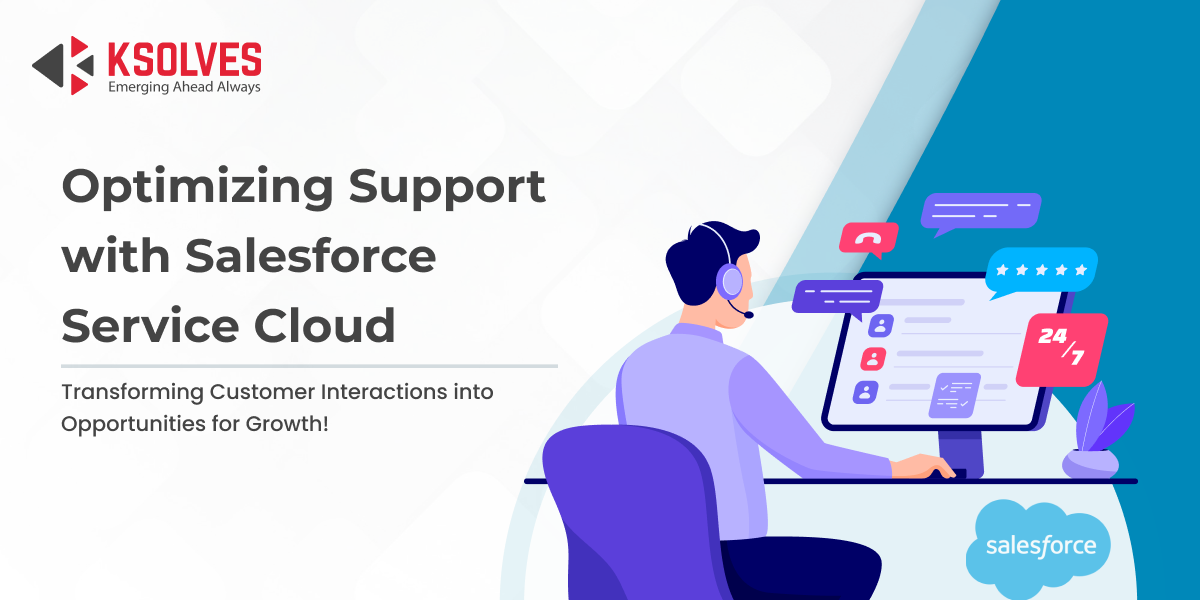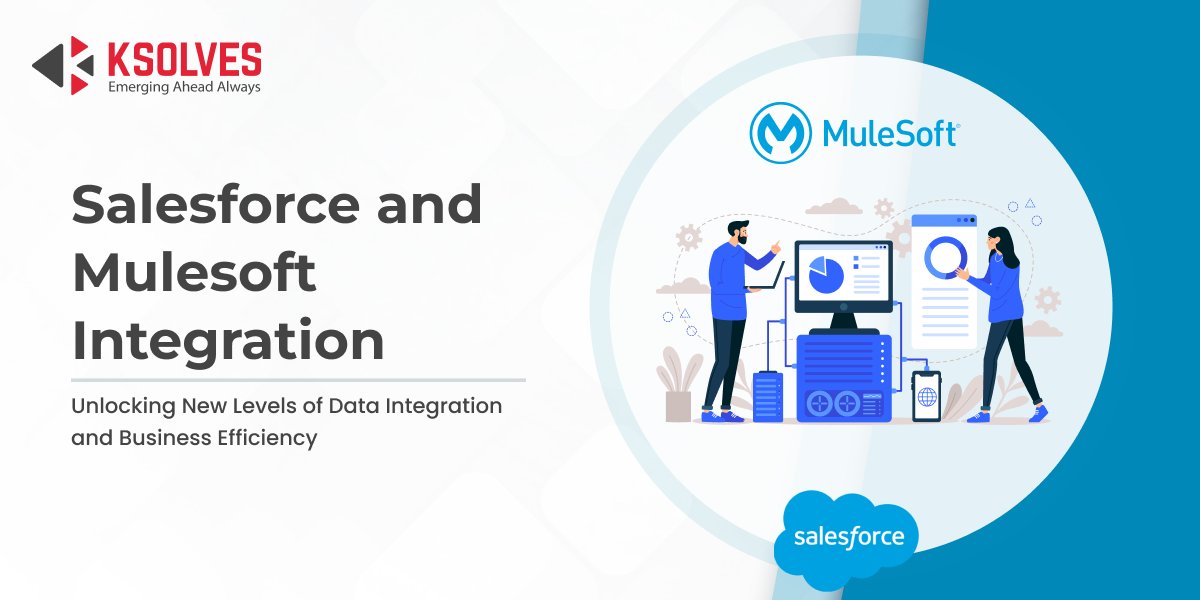AI agents in Manufacturing: Benefits, Use Cases, and Implementation Strategies
Salesforce
5 MIN READ
April 24, 2025
![]()

Manufacturers are under increasing pressure to optimize operations, reduce costs, and enhance productivity while dealing with labor shortages, supply chain disruptions, and evolving market demands. Traditional automation is no longer enough. Businesses need intelligent systems that can adapt, learn, and make decisions in real time.
AI agents are revolutionizing manufacturing by enabling factories to operate with greater efficiency, precision, and autonomy. These intelligent systems analyze vast amounts of data, predict maintenance needs, streamline workflows, and improve quality control, reducing downtime and boosting overall output. As AI-driven solutions become more sophisticated, manufacturers must explore how AI agents can integrate into their operations to achieve new levels of efficiency and competitiveness.
In this article, we will explore key use cases, benefits, and implementation strategies to help businesses harness AI agents effectively. Let’s begin!
Understanding AI Agents for Manufacturing
AI agents are smart software programs that can perform tasks or make decisions on their own. In manufacturing, these agents use data, machine learning, and real-time monitoring to improve various parts of the production process. They help optimize scheduling, manage inventory, predict maintenance needs, and enhance quality control, among other tasks.
Their ability to quickly process large amounts of data and spot patterns makes them a perfect fit for manufacturing. By making decisions based on up-to-date information, AI agents boost productivity and efficiency. They work around the clock, continuously monitoring and analyzing data to maintain high performance and quality. For companies looking to implement these technologies effectively, Agentforce implementation services provide the expertise needed to integrate AI agents seamlessly into their operations.
Key Benefits of AI Agents in Manufacturing
Integrating AI agents into manufacturing can transform your operations by boosting profits, streamlining workflows, and enhancing product quality. Let’s dive into the top benefits of agentforce and how they can reshape the way you work.
1. Increased Operational Productivity and Efficiency
AI agents take over repetitive, time-consuming tasks, letting human workers focus on higher-value activities. By streamlining processes and optimizing workflows, they help manufacturers produce more in less time. With real-time data analysis, AI agents offer insights that speed up decision-making, reduce errors, and cut waste, leading to noticeable cost savings.
2. Reduced Costs Through Automation
Automating key tasks such as inventory management, quality control, and predictive maintenance lowers operational expenses. AI agents can predict when equipment needs repairs, which prevents costly breakdowns and minimizes downtime. Manufacturers who adopt AI agents have reported up to 14% savings in operational costs through improved efficiency and automation.
3. Enhanced Quality Control and Defect Detection
Using advanced algorithms and sensors, AI agents continuously monitor production lines to spot defects and quality issues as they happen. This proactive detection helps reduce the number of faulty products and waste. Additionally, by analyzing customer feedback, AI agents identify trends in product defects that enable manufacturers to refine their processes and improve overall quality.
4. Improved Supply Chain Management
AI agents optimize supply chain operations by analyzing data from various sources, such as supplier performance, inventory levels, and demand forecasts. This comprehensive view supports better decisions regarding inventory replenishment, logistics, and supplier relations, which results in lower costs and improved customer service.
5. Optimized Product Design and Customization
By examining customer preferences, market trends, and technical constraints, AI agents assist in product design. This data-driven approach lets manufacturers create products that meet customer needs more accurately. It ultimately leads to increased sales and greater customer satisfaction.
How Do AI Agents in Manufacturing Work?
AI agents in manufacturing work by gathering and analyzing data to make smart decisions on their own. They start by collecting lots of information from sensors, machines, and ERP systems. This includes everything from production schedules and machine performance to quality checks and customer feedback. It gives them a full picture of how the factory is running.
Next, they use machine learning algorithms to look for patterns and trends in the data. Over time, these algorithms get better at predicting what might happen next and suggesting the best actions to take.
Finally, AI agents keep an eye on manufacturing processes in real time. They quickly spot any problems or deviations and can automatically adjust things like production schedules and inventory levels, or even trigger maintenance tasks without waiting for human input. This continuous monitoring and decision-making help keep operations running smoothly and efficiently.
Application of AI Agents in Manufacturing
The versatility of AI agents in manufacturing brings a host of practical benefits that change the way factories operate and drive innovation. Here are some key examples:
1. Real-Time Customer Interaction & Support
What It Does:
Agentforce AI agents engage with customers instantly, handling inquiries related to orders, inventory, and delivery timelines. By leveraging historical data and individual customer profiles, these AI agents provide personalized, accurate, and context-aware responses around the clock.
Why It Matters:
This real-time interaction elevates customer satisfaction through immediate support and tailored communication. It also reduces pressure on human support teams, allowing them to focus on complex cases while maintaining 24/7 service availability.
2. Dynamic Demand Forecasting & Inventory Management
What It Does:
AI agents analyze real-time sales trends, historical data, and production inputs to forecast demand accurately. Based on these insights, they automatically adjust production plans and inventory levels to match market needs.
Why It Matters:
Accurate forecasting minimizes the risks of overproduction or stock shortages. It ensures product availability when customers need it, boosts inventory turnover, and enhances supply chain responsiveness.
3. Autonomous Supply Chain Monitoring & Optimization
What It Does:
Agentforce AI monitors supply chain operations continuously, identifying risks such as supplier delays, weather disruptions, or logistical bottlenecks. The system proactively adjusts procurement, logistics, and inventory strategies in real time.
Why It Matters:
Proactive monitoring helps manufacturers respond swiftly to disruptions, reducing delays and operational costs. This leads to more reliable delivery schedules, smoother workflows, and higher customer satisfaction.
4. Automated Production Scheduling & Resource Allocation
What It Does:
AI agents evaluate live data from machines, workforce schedules, and material availability to optimize production planning. They dynamically allocate tasks to ensure maximum efficiency and minimal downtime on the factory floor.
Why It Matters:
Real-time scheduling eliminates idle time, accelerates production, and enhances capacity utilization. This allows manufacturers to adapt quickly to demand changes while keeping costs in check.
5. Real-Time Quality Control & Defect Detection
What It Does:
By integrating with sensors and machine learning models, Agentforce AI performs continuous quality checks during production. It detects defects such as cracks or misalignments and initiates corrective actions immediately—like halting production or notifying quality teams.
Why It Matters:
Automated, real-time defect detection ensures that only high-quality products reach customers. This reduces waste, enhances compliance with industry standards, and is vital for precision-driven industries like automotive or aerospace.
6. Predictive Maintenance & Smart Alerts
What It Does:
AI agents use IoT sensor data to monitor equipment conditions in real time. They identify early signs of failure—such as unusual vibrations or overheating—and predict when maintenance is needed. Maintenance tasks are triggered automatically, and alerts are sent to technicians.
Why It Matters:
Predictive maintenance prevents unexpected breakdowns and costly downtime. Timely alerts keep equipment operating at peak efficiency, extend machinery lifespan, and maintain uninterrupted production.
7. Real-Time Resource & Energy Optimization
What It Does:
AI agents analyze live data on energy consumption to optimize machine operations for efficiency. They can adjust equipment settings, recommend shifts to renewable energy sources, and monitor emissions to support sustainability goals.
Why It Matters:
Smarter energy use cuts costs and reduces environmental impact. It helps manufacturers comply with regulations, meet green targets, and run more sustainable, cost-efficient operations.
8. Workforce Productivity & Task Optimization
What It Does:
Agentforce AI monitors employee workflows to identify inefficiencies and bottlenecks. It delivers real-time performance feedback and suggests task adjustments or training. The system also reallocates assignments to maximize workforce effectiveness.
Why It Matters:
By optimizing how people work, manufacturers can increase productivity, reduce task redundancies, and ensure teams are focused on high-value activities. This fosters a more agile, empowered, and efficient workforce.
Also Read: Agentforce for Retail – AI-Powered Automation by Salesforce
Challenges and Considerations with Implementing AI Agents
While AI agents offer significant benefits, using them in manufacturing also comes with some challenges:
1. Data Privacy and Security
AI agents collect and analyze sensitive manufacturing data. It’s crucial to have strong security measures in place to protect this information from unauthorized access or breaches.
2. Integration with Existing Systems
Fitting AI agents into your current manufacturing systems and software can be complex and take time. Careful planning is needed to ensure that the new technology works well with your existing setup without causing disruptions.
3. Data Quality
Manufacturing data is often incomplete, inconsistent, or not well-organized, making it difficult for AI agents to extract useful insights. Improving data quality through cleaning, normalization, and validation is essential for AI agents to work accurately.
4. Training and Upskilling the Workforce
Introducing AI agents means that your employees will need to learn how to work with this new technology. Providing proper training and upskilling helps ensure a smooth transition, boosts productivity, and offers opportunities for career growth and increased job satisfaction.
Implementing AI Agents: Strategies and Best Practices
Here are the best strategies and practices to follow if you are looking to implement AI agents in your manufacturing business:
1. Start Small
Begin with a pilot project to test AI agents on a specific process. This approach allows you to learn from early results and refine the solution before a full-scale rollout.
2. Ensure Data Quality
Clean, structure, and validate your data to guarantee accurate insights from AI agents. High-quality data is essential for reliable performance and meaningful results.
3. Plan Integration
Create a detailed integration plan to connect AI agents with your current systems. A well-mapped strategy prevents disruptions and ensures smooth data flow across platforms.
4. Train Your Team
Invest in clear and practical training so your staff can work confidently with AI agents. Proper training promotes faster adoption and enhances overall productivity.
5. Monitor and Optimize
Set clear performance indicators and continuously monitor AI agent activities. Regular reviews and adjustments help maintain optimal performance and drive ongoing improvements.
6. Scale Gradually
Once a pilot project shows success, gradually expand the use of AI agents to other processes. This step-by-step scaling minimizes risks while maximizing efficiency gains.
Future Trends in AI Agents for Manufacturing
Edge computing and IoT integration are set to play a major role in the future of AI agents in manufacturing. These technologies enable real-time data collection and analysis, allowing AI agents to make smarter, faster decisions. In addition, the growing use of natural language processing and machine learning will help AI agents understand and respond to human commands more effectively. This progress will lead to more advanced and adaptable AI agents, offering a more personalized experience for both employees and customers.
Ethical and responsible AI is also becoming a top priority in manufacturing. Companies are focused on ensuring that AI agents make fair and ethical decisions without bias. Another emerging trend is the closer collaboration between AI agents and human workers. As AI takes over routine tasks, human employees can concentrate on more complex and creative challenges. Overall, the integration of AI agents will boost efficiency, productivity, and innovation across the manufacturing industry.
Also Read: Edge AI vs Cloud AI: Quick Insights for Your AI Strategy
Conclusion
AI agents have the power to transform manufacturing by improving productivity, reducing costs, and boosting quality control. From predictive maintenance to smart supply chain management, these intelligent systems offer real-time insights that drive efficiency and help companies stay competitive in a rapidly changing market. The ability to quickly analyze data and make informed decisions is a game-changer for manufacturers looking to optimize their operations.
At Ksolves, we understand the challenges of integrating AI into manufacturing processes. Our expertise in agentforce consulting services ensures a smooth transition, tailored to your unique needs. We help you unlock the full potential of AI agents while minimizing disruptions and accelerating your digital transformation. Looking for something extra? Get our Agentforce consulting service and learn how you can get the most out of AI.
![]()




AUTHOR
Salesforce
Md. Asad Khan, an expert Technical Project Manager at Ksolves, who is a certified Salesforce architect at Ksolves, brings 7+ years of experience. He specializes in FSL, B2B, Service & Sales Cloud, and Non-profit cloud, excelling in APEX, Aura Component Framework, Lightning Components, Triggers, Visualforce, and creating insightful dashboards and reports.
Share with